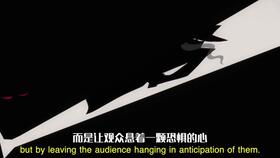Content:
When it comes to fishing, one of the most crucial skills to master is how to effectively retrieve your fish line. Whether you're a seasoned angler or a beginner, understanding the right techniques for fish line retrieval can make all the difference between a successful catch and a frustrating day on the water. Here are some essential fishing techniques to help you improve your fish line retrieval skills.
Choose the Right Equipment
Before you even cast your line, ensure you have the right equipment. A sturdy rod, a reliable reel, and high-quality fishing line are non-negotiables. The type of fishing line you choose should depend on the type of fish you're targeting and the conditions of the water you're fishing in. Monofilament, fluorocarbon, and braided lines each have their advantages and disadvantages, so do your research and select the one that suits your needs.
Proper Casting Techniques
A good cast is the foundation of successful fish line retrieval. Here are some tips to improve your casting:
- Hold the Rod Correctly: Grip the rod with a firm but relaxed hand, allowing the reel to rest comfortably in your other hand.
- Backcast Properly: Start by lifting the rod back with a smooth, continuous motion, then stop and let the line unwind. This helps to clear the line from the guides and prepare it for the forward cast.
- Forward Cast: Bring the rod forward with a smooth, accelerating motion, and then stop at the end of the cast. This allows the line to load onto the reel smoothly.
- Practice: Like any skill, casting takes practice. Spend time on the shore or in a calm area to perfect your technique.
Understanding Line Management

Effective line management is key to successful fish line retrieval. Here are some tips:
- Keep the Line Taut: A taut line helps you feel the bite and reduces the risk of losing fish. However, don't pull too hard, as this can lead to breakage or spook the fish.
- Use a Leader: A leader is a length of line with a different diameter than your main line. It helps to protect your main line from abrasive substrates and provides a better chance of landing a fish.
- Know Your Line Length: Keep track of how much line you have out. This is especially important when fighting a fish, as you need to know how much line you can safely retrieve.
Reeling In Techniques
Once a fish takes the bait, it's time to reel it in. Here's how to do it effectively:
- Set the Hook: When you feel a tap or a pull, immediately set the hook by jerking the rod tip down and forward. This helps to secure the fish and prevent it from running.
- Play the Fish: Allow the fish to run with the line as it struggles. Use a combination of rod movements and tension to tire the fish without breaking the line.
- Land the Fish: Once the fish is close enough to reach, bring it in gently and securely. Use a net if available to avoid damaging the fish.
Dealing with Snags
Snags are an inevitable part of fishing, but there are ways to deal with them:
- Cut the Line: If the snag is minor, you may be able to cut the line close to the snag and retrieve the rest of the line.
- Retrieve the Line: If the snag is deeper, you may need to retrieve the line by hand. Be careful not to pull too hard, as this can damage the line or the equipment.
- Use a Snagging Tool: There are specialized tools designed to help you remove snags from the water. These can be particularly useful in heavy cover or when dealing with particularly stubborn snags.
Safety First
Always prioritize safety when fishing. Here are some tips:
- Wear a Life Jacket: This is especially important if you're fishing from a boat or in rough water.
- Be Aware of Your Surroundings: Keep an eye out for other anglers, boats, and wildlife.
- Know How to Handle Fish: Properly handling fish is crucial for their survival. Use a net to land fish and avoid unnecessary stress.
By mastering these fishing techniques, you'll be well on your way to becoming a proficient angler. Remember, practice makes perfect, so don't be discouraged if you encounter challenges. With time and experience, you'll develop a strong connection with the water and the fish that inhabit it. Happy fishing!












